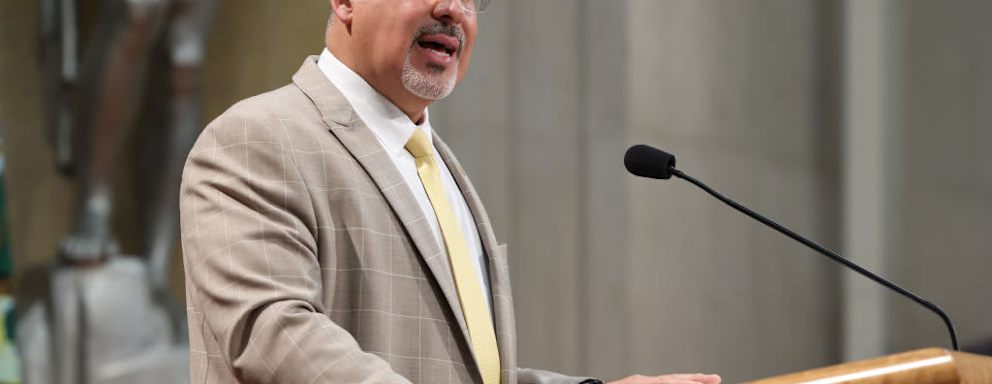FAFSA Correction Issues May Delay Fall Financial Aid Awards
 Credit: Image Credit: Kevin Dietsch / Staff / Getty Images News
Credit: Image Credit: Kevin Dietsch / Staff / Getty Images News- The Department of Education promised financial aid offices it would begin batch corrections of FAFSA forms in August.
- Now, the department says it won’t process any batch corrections.
- Financial aid offices will now need to scramble to make FAFSA corrections manually.
- Students may have to start the school year without student loans due to this issue.
An eleventh-hour backtrack may result in college students being left without their financial aid awards when the school year starts this fall.
The Department of Education (ED) announced that it will not process batch corrections for students who submitted Free Application for Federal Student Aid (FAFSA) forms with errors. This is a flip-flop from mid-June when the department promised financial aid offices that it would begin to make batch corrections to FAFSA forms in the first half of August.
ED’s last-minute announcement means college financial aid administrators must scramble to manually correct FAFSAs, or else students may not get their financial aid awards in time.
Beth Maglione, interim president and CEO of the National Association of Student Financial Aid Administrators (NASFAA), expressed her disappointment in a statement.
The department’s poor planning has led to a stunning failure: Some college students might not have financial aid dollars in their hands in time to start classes in the next few weeks,
she said. And for schools, the impact of today’s announcement means more than a few extra hours of work. It’s the difference between pushing a button versus making thousands of keystrokes in terms of administrative burden.
ED’s change of heart is the latest in a long line of issues that plagued the rollout of the 2024-25 FAFSA.
The department gave two reasons for its decision not to process batch corrections:
- Institutions wouldn’t be able to utilize batch corrections before the fall semester begins.
- ED is prioritizing the launch of the 2025-26 FAFSA form.
ED added that it is offering support to institutions that may now need to rapidly process FAFSA corrections manually. This includes the availability of no-cost technical assistance
through its FAFSA Partner Portal (FPP).
We know this decision creates additional burdens for institutions that are already experiencing a heavy workload and increased demands during this extraordinary FAFSA processing cycle,
ED said in its announcement.
Jill Desjean, director of policy analysis at NASFAA, previously told BestColleges that manual corrections present a massive undertaking for many institutions, especially large, public universities expected to enroll many students this fall.
Additionally, she said it can be difficult for institutions to track what changes need to be made on individual student forms — something ED can track much more easily.
The result is a potential delay in financial aid awards.
This won’t necessarily mean students will be barred from classrooms for not meeting tuition requirements. Instead, a delay will impact the disbursement of federal student loans, which many students rely on to pay for noneducational expenses like housing and food.
MorraLee Keller, senior director of strategic programming at the National College Attainment Network, said in a statement that she expects the issue to impact students’ ability to enroll this fall.
Desjean advised students to call their financial aid office to check whether their FAFSA needs a correction. While this won’t speed up the process, it can at least prepare students for a delayed financial aid award.
Keller encouraged financial aid officers to reach out to students awaiting a correction so that they are aware of the situation and potential risks.